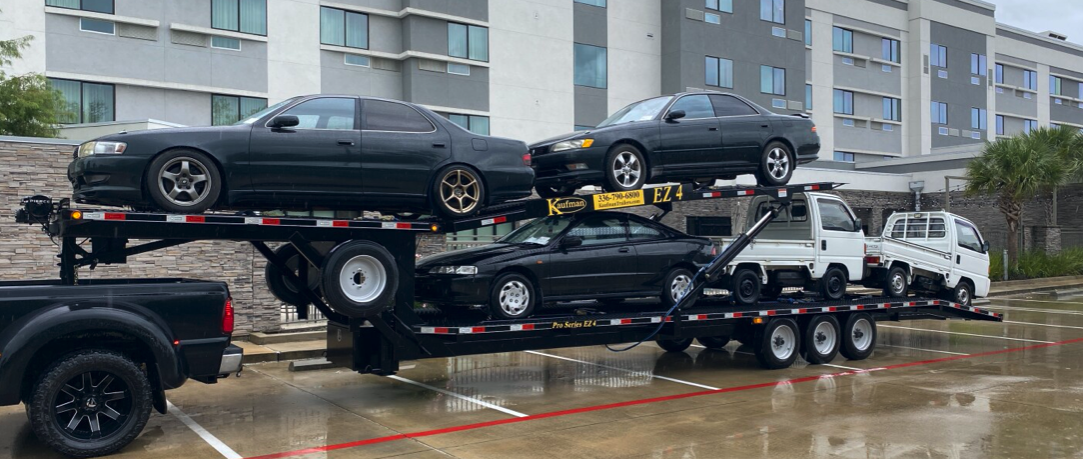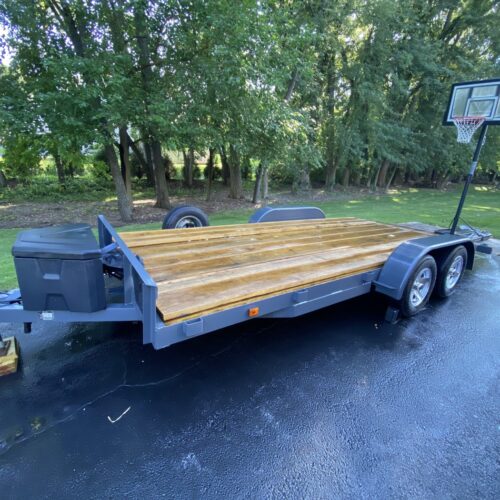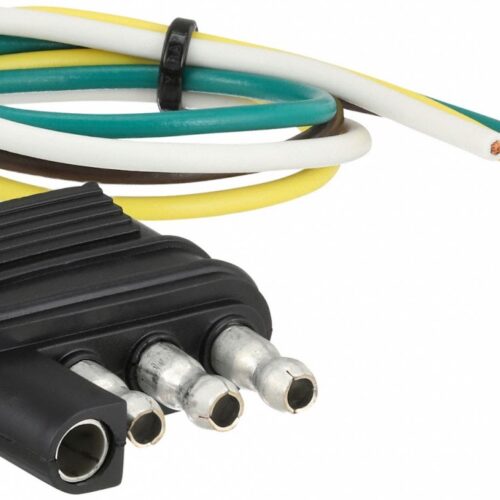When it comes to choosing the right trailer for hauling heavy loads, gooseneck trailers often emerge as a popular choice. These trailers, known for their unique design that attaches to the bed of a pickup truck, offer a range of advantages and disadvantages. In this blog, we’ll delve into the pros and cons of gooseneck trailers to help you make an informed decision for your hauling needs.
Pros and Cons of a Gooseneck Trailer
- Increased stability
- Greater towing capacity
- Improved maneuverability
- Reduced Sway
- Specialized hitch required
- Less compatibility with smaller vehicles
- Reduced accessibility to cargo
- Initial cost
Pros of a Gooseneck Trailer
Increased Stability:
Gooseneck trailers typically provide better stability compared to conventional bumper-pull trailers. The design allows for a more even distribution of weight over the towing vehicle and the trailer itself. This added stability is particularly beneficial when hauling heavy or uneven loads.
Greater Towing Capacity:
Gooseneck trailers can handle higher towing capacities than many other trailer types. This makes them an ideal choice for those needing to transport large and heavy loads, such as livestock, construction equipment, or multiple vehicles.
Improved Maneuverability:
The design of gooseneck trailers, with the hitch point situated in the bed of the towing vehicle, allows for better maneuverability. This can be advantageous when navigating tight spaces or making sharp turns, especially in comparison to traditional bumper-pull trailers.
Reduced Sway:
The gooseneck hitch configuration minimizes sway during travel. This reduction in swaying motion contributes to a smoother towing experience, enhancing safety and control on the road.
Cons of a Gooseneck Trailer
Specialized Hitch Required:
One of the main drawbacks of gooseneck trailers is that they require a specialized hitch installed in the bed of the towing vehicle. This installation can be more complex and may limit the use of the vehicle for other purposes.
Less Compatibility with Smaller Vehicles:
Gooseneck trailers are typically better suited for larger towing vehicles, such as trucks. Smaller vehicles may not be equipped to handle the weight and towing configuration of gooseneck trailers.
Reduced Accessibility to Cargo:
While the design allows for increased bed space, accessing cargo in the bed of the towing vehicle can be more challenging when a gooseneck trailer is attached. This limitation may affect the convenience of loading and unloading items.
Initial Cost:
Gooseneck trailers, including the specialized hitches, can be more expensive upfront compared to some other trailer options. This initial investment may be a consideration for budget-conscious individuals.
Gooseneck trailers undeniably provide a range of advantages for those in need of stable and high-capacity towing. However, the decision to invest in one involves considering factors like the need for a specialized hitch and potential limitations in cargo accessibility. Fortunately, for those who may be hesitant about the upfront costs or the infrequent use of a gooseneck trailer, there’s a modern solution at hand. Towlos, a peer-to-peer trailer rental marketplace, allows individuals to access the benefits of gooseneck trailers without the commitment of ownership. This innovative platform connects trailer owners with those in need of towing solutions, offering a flexible and cost-effective alternative to traditional trailer ownership. So, whether you have occasional hauling needs or are exploring options for a specific project, towlos provides a convenient and practical way to access the advantages of gooseneck trailers without the long-term investment.




